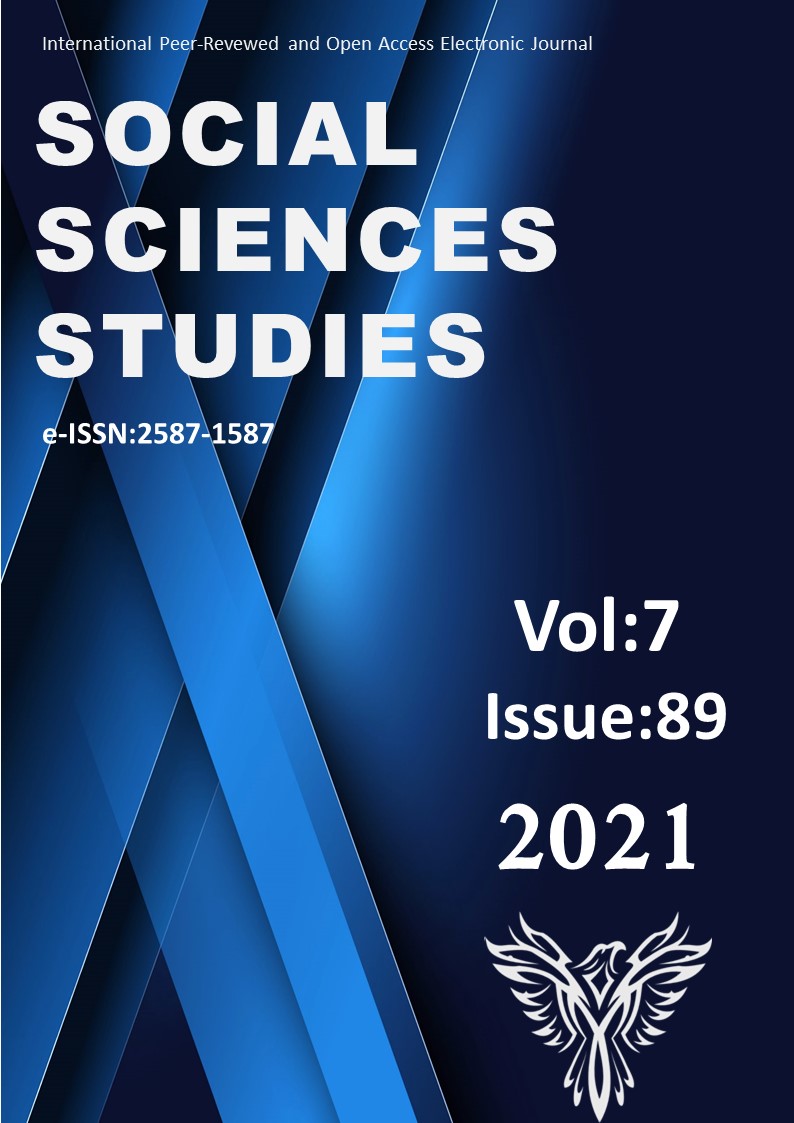Author :
Abstract
Değişimin büyük hızla gerçekleştiği günümüzde, devletler arası mücadelelerinde bu değişim bağlamında farklılaştığı söylenebilecektir. Bu doğrultuda, güncel mücadelelerin çoklu araç, aktör ve taktikler içerdiği ve bu nedenle hibrit savaş olarak adlandırıldıkları belirtilebilecektir. İran İslam Cumhuriyeti’nin (İİC) özellikle İslam Devrimi sonrası konjonktürde belirlediği doktrinler ve hedefler ile bunlara ulaşmak için geliştirdiği araçlar ve imkân/kabiliyetler de bir anlamda hibrit olarak nitelendirilmekte olup ülkenin Suriye’de sürdürdüğü faaliyetler bu konseptte değerlendirilebilecektir. Ayrıca, İran’ın söz konusu bu konsepti değişen çevresel koşullara adapte olmak için oluşturduğu, bu oluşum ve uygulama sürecinin İran güvenlik bürokrasinin bazı örgütsel özellikleri neticesinde ortaya çıktığı ifade edilebilecektir. Bu anlamda, bu özelliklerin öğrenen örgüt yaklaşımlarından Senge’in (1990) ‘Beş Disiplin’ ile açıklanıp açıklanamayacağı hususu bu araştırmanın temel sorusudur. Araştırma sorusu, İran’ın hibrit konsept dahilinde özellikle Suriye’de yürüttüğü faaliyetlere ilişkin örnekler ile cevaplanma çalışılmış olup çalışmanın uluslararası güvenlik alanına çeşitli katkılar sunacağı beklenmektedir.
Keywords
Abstract
In today's world, where the change is happening rapidly, it the struggles between states also differ in the context of this change. Accordingly, it can be stated that current struggles contain multiple tools, actors and tactics and therefore they are called hybrid warfare. The doctrines and targets set by the Islamic Republic of Iran (IRI), especially in the post-Islamic Revolution conjuncture, and the tools and capabilities it has developed to achieve these are also described as hybrid in a sense, and the country's activities in Syria can be evaluated in this concept. In addition, it can be stated that Iran created this concept in order to adapt to changing environmental conditions, and this formation and implementation process emerged as a result of some organizational features of the Iranian security bureaucracy. In this sense, whether these characteristics can be explained by Senge's (1990) 'Five Disciplines', one of the learning organization approaches, is the main question of this research. The research question has been tried to be answered with examples of Iran's activities, especially in Syria, within the hybrid concept, and it is expected that the study will make various contributions to the field of international security.
Keywords
- Fayganoğlu, K. & Fayganoğlu, P. (2021). “Hibrit Savaş Ve Öğrenen Örgütler: İİC’nin Suriye Faaliyetleri” International Social
- Sciences Studies Journal, (e-ISSN:2587-1587) Vol:7, Issue:89; pp:4416-4443 HİBRİT SAVAŞ VE ÖĞRENEN ÖRGÜTLER: İİC’NİN SURİYE FAALİYETLERİ Hybrid Warfare and Learning Organizations: The Activities of Iran ın Syria Dr. Koruhan FAYGANOĞLU Başkent Üniversitesi, İktisadi ve İdari Bilimler Fakültesi, İşletme Bölümü, Ankara/Türkiye ORCID ID: https://orcid.org/0000-0002-1572-5552 Dr. Öğr. Üyesi. Pınar FAYGANOĞLU Milli Savunma Üniversitesi, Kara Harp Okulu, İşletme ve Yönetim Bilimleri Bölümü, İstanbul/Türkiye ORCID ID: https://orcid.org/ 0000-0001-5611-7919 ÖZET Değişimin büyük hızla gerçekleştiği günümüzde, devletler arası mücadelelerinde bu değişim bağlamında farklılaştığı söylenebilecektir. Bu doğrultuda, güncel mücadelelerin çoklu araç, aktör ve taktikler içerdiği ve bu nedenle hibrit savaş olarak adlandırıldıkları belirtilebilecektir. İran İslam Cumhuriyeti’nin (İİC) özellikle İslam Devrimi sonrası konjonktürde belirlediği doktrinler ve hedefler ile bunlara ulaşmak için geliştirdiği araçlar ve imkân/kabiliyetler de bir anlamda hibrit olarak nitelendirilmekte olup ülkenin Suriye’de sürdürdüğü faaliyetler bu konseptte değerlendirilebilecektir. Ayrıca, İran’ın söz konusu bu konsepti değişen çevresel koşullara adapte olmak için oluşturduğu, bu oluşum ve uygulama sürecinin İran güvenlik bürokrasinin bazı örgütsel özellikleri neticesinde ortaya çıktığı ifade edilebilecektir. Bu anlamda, bu özelliklerin öğrenen örgüt yaklaşımlarından Senge’in (1990) ‘Beş Disiplin’ ile açıklanıp açıklanamayacağı hususu bu araştırmanın temel sorusudur. Araştırma sorusu, İran’ın hibrit konsept dahilinde özellikle Suriye’de yürüttüğü faaliyetlere ilişkin örnekler ile cevaplanma çalışılmış olup çalışmanın uluslararası güvenlik alanına çeşitli katkılar sunacağı beklenmektedir. Anahtar Kelimeler: İİC, Hibrit Savaş, Öğrenen Örgütler ABSTRACT
